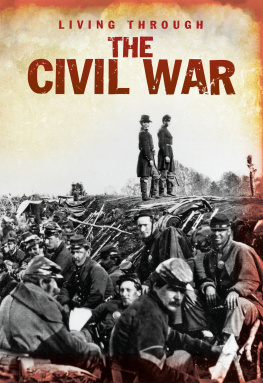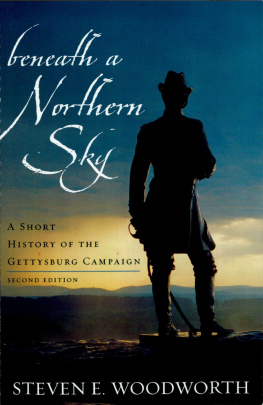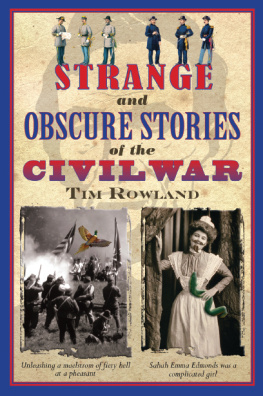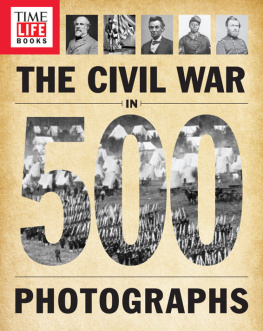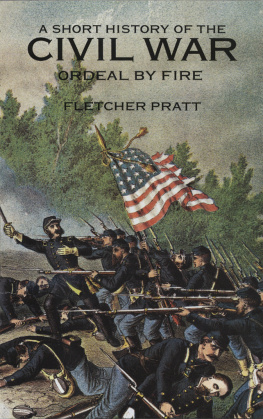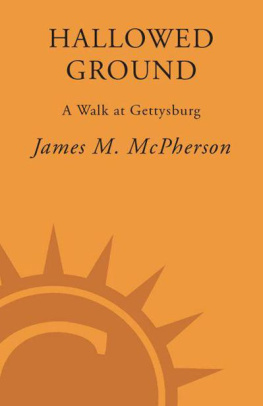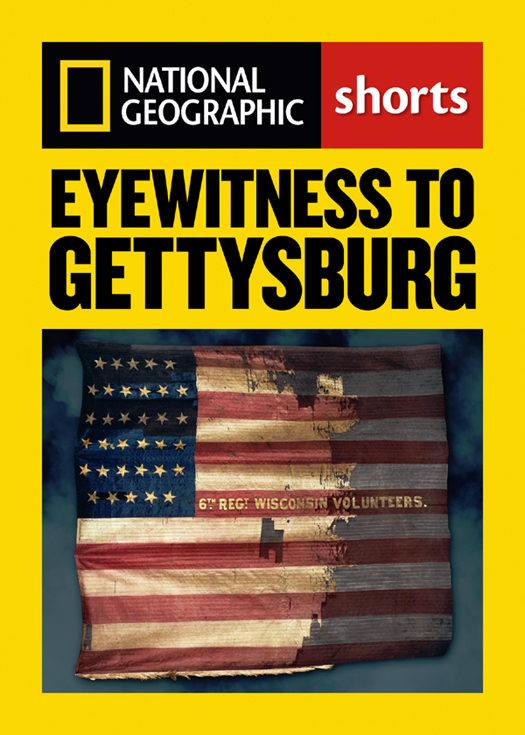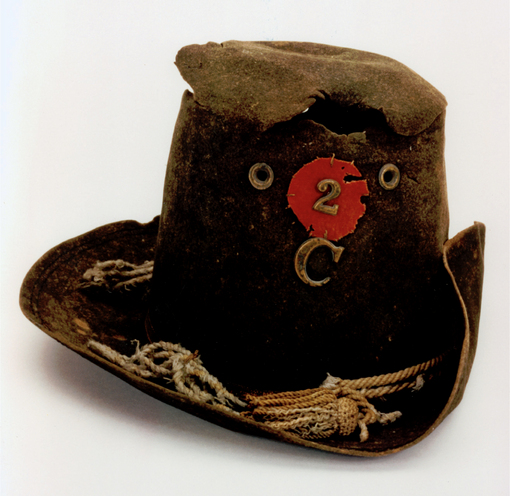Published by the National Geographic Society
1145 17th Street N.W., Washington, D.C. 20036
Copyright 2013 National Geographic Society. All rights reserved. Reproduction of the whole or any part of the contents without written permission from the publisher is prohibited.
eISBN: 978-1-4262-1049-5
The complete text of Eyewitness to Gettysburg was previously published in Eyewitness to the Civil War, prepared in collaboration with Kagan & Associates (NGS, 2006).
The National Geographic Society is one of the worlds largest nonprofit scientific and educational organizations. Founded in 1888 to increase and diffuse geographic knowledge, the Societys mission is to inspire people to care about the planet. It reaches more than 400 million people worldwide each month through its official journal, National Geographic, and other magazines; National Geographic Channel; television documentaries; music; radio; films; books; DVDs; maps; exhibitions; live events; school publishing programs; interactive media; and merchandise. National Geographic has funded more than 10,000 scientific research, conservation, and exploration projects and supports an education program promoting geographic literacy.
For more information, visit www.nationalgeographic.com
National Geographic Society 1145 17th Street N.W. Washington, D.C. 20036-4688 U.S.A.
For rights or permissions inquiries, please contact National Geographic Books Subsidiary Rights:
Cover: This flag of the Sixth Wisconsin Infantry was carried during the fighting on July 1 at Gettysburg.
(Courtesy Wisconsin Veterans Museum)
v3.1
C ONTENTS
C HAPTER O NE
Lincoln Changes Horses
C HAPTER T WO
Converging on Chancellorsville
C HAPTER T HREE
Lost in the Wilderness
C HAPTER F OUR
Invading Pennsylvania
C HAPTER F IVE
Collision at the Crossroads
C HAPTER S IX
The Great Battle of the War
C HAPTER S EVEN
The Final Sacrifice
This hat was worn by Sgt. Philander Wright, wounded at Gettysburg while serving with the Second Wisconsin Infantry. His regiment was part of the Iron Brigade, also known as the Black Hat Brigade for the tall felt hats the men wore, adopted from the Regular Army.
( Courtesy Wisconsin Veterans Museum )
Time Line
January 26, 1863 Maj. Gen. Joseph Hooker replaces Maj. Gen. Ambrose Burnside as commander of the Army of the Potomac.
March 17 Battle of Kellys Ford (Virginia)
May 14 Battle of Chancellorsville (Virginia)
June 9 Battle of Brandy Station (Virginia)
July 13 Battle of Gettysburg (Pennsylvania)
November 19 President Abraham Lincoln presents the Gettysburg Address to dedicate the Gettysburg National Cemetery.
C HAPTER O NE
Lincoln Changes
Horses
F or the two war-weary armies facing each other in Virginia, it was a lull between storms. After their explosive encounter at Fredericksburg in December, they had settled into winter camps on either side of the Rappahannock River. Men welcomed the respite, but inactivity could be as hard on troops as marching and fighting. The imminent threat of death in battle faded, only to be replaced by the perils of disease, malnutrition, and exposure. That winter was probably the most dreary and miserable we had, recalled Capt. Alexander Haskell of Gen. Robert E. Lees Army of Northern Virginia. The suffering from cold, hunger, and nakedness was intense and widespread. There were thousands on duty in the perpetual snow and mud, without shoes, often no blanket, hardly any overcoats, and many without coats, nothing often but a ragged homespun shirt. Shortages of food and clothing grew worse for Confederates as Federals occupied their territory, tightened the blockade, and took control of the Mississippi. Families sent aid to soldiers in camp, Haskell noted, but much of this was lost by defective transportation, and for the poor fellows from across the Mississippi nothing could come.
Lee himself lived frugally that winter, as Haskell discovered when he visited the generals headquarters in early 1863. He chanced to come out just as I was taking my leave, Haskell wrote, and as it was the hour for dinner he politely insisted on my sharing the meal. If the young captain expected a feast, he was mistaken. As they entered the tent, he related, there was before us a crude board table with camp stools around it; on it a beautiful glass dish of Virginia Pickles sent by some hospitable Virginia lady; the balance of the dinner was a plate of corn bread, or pones, and a very small piece of boiled bacon. After saying grace, Lee explained to his guests that his Irish servant Mike had harder work than we have in Quarters, and must be fed. He then cut a thick slice for Mike, Haskell noted, laid it aside, and offered each of his guests and himself a portion that was but a fraction of Mikes.
This was typical of Lee, whose consideration for men of all ranks helped earn him the lasting devotion of his troops in circumstances that would have demoralized other armies. Soldiers called him Marse Robert and felt he had their best interests at heart even during the hardest campaigns. The boys never cheer him, wrote Cpl. Edmund Patterson, but pull off their hats and worship. For all his personal charm, Lee could not have commanded such loyalty without success in battle. Much as he did as a host by stretching that very small piece of boiled bacon as far as possible, he made the most of limited resources as a commander by repeatedly defeating armies larger and better equipped than his own. He could not hope to perform such feats much longer, however, if his army grew much weaker. Losses to desertion and disease were mounting, and his men were so malnourished he was not sure how much more he could ask of them. I fear they will be unable to endure the hardships of the approaching campaign, he wrote in late March. Symptoms of scurvy are appearing among them, and, to supply the place of vegetables, each regiment is directed to send a daily detail to gather sassafras buds, wild onions, garlic, lambs quarter, and poke sprouts.
For now, the poor condition of his troops and the numerical superiority of the Federals across the river forced him to remain on the defensive. But if his opponents happened to squander their advantage and leave him an opening, he would attack with everything he had. He could not afford to play a waiting game. One more winter of hardship and stalemate such as this and his army might be driven back toward Richmond, the Confederate capital, and ultimate defeat. However, if the year ended with the Federals in retreat and the Union demoralized, Northern voters might reject Abraham Lincoln in 1864 in favor of a Democrat willing to end the war on terms favorable to the South. If his army prevailed, Lee wrote to his wife, there will be a great change in public opinion at the North. The Republicans will be destroyed.



